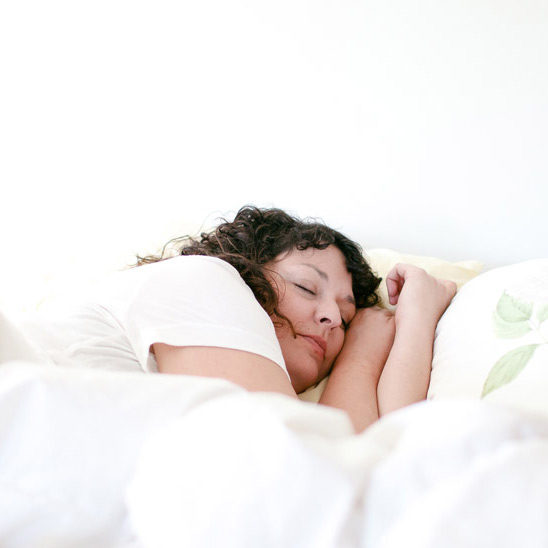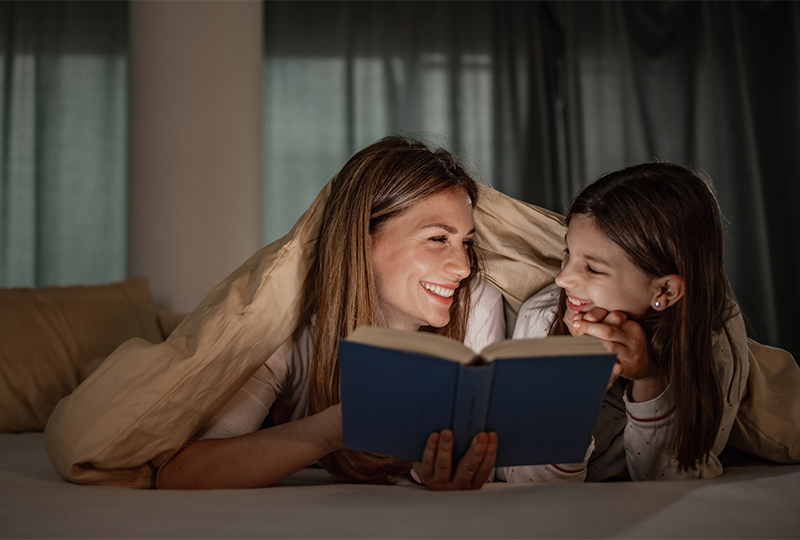The short answer is that the jury’s still out on this one. But if you do give your child melatonin, follow these guidelines.
Use of the dietary supplement melatonin has been on the rise over the past decade among adults looking to get to sleep faster. And now, many of them are wondering, “Is melatonin safe for kids?”
Considering up to half of all children experience sleep problems, it’s not surprising parents are looking for answers. But because there are no studies to date evaluating the safety of long-term melatonin use in kids, it’s difficult to say definitively if melatonin is safe for kids.
First, address sleep hygiene
Before you consider giving your child melatonin to aid in sleep, pediatric neurologist and Vanderbilt Health sleep specialist Dr. Beth Ann Malow suggests first trying to figure out what’s causing your child to have difficulty sleeping.
“Whenever possible, it’s best to avoid medication, even a supplement like melatonin.”
“It’s important to really look at what else might be going on that could be corrected so that a child can get to sleep without melatonin,” she said. “Whenever possible, it’s best to avoid medication, even a supplement like melatonin.”
For younger kids, you’ll want to consider developmental reasons for sleep problems, including teething, separation anxiety, daytime sleep and more. With older kids, nightmares, anxiety, stress and the need to urinate at night can contribute to disturbed sleep.
Sometimes poor sleep hygiene is to blame. Malow recommends implementing the following before considering melatonin use for kids:
- Establishing a consistent bedtime and wake time that kids stick to during the week and on weekends.
- Developing a calming bedtime routine that may include a warm bath, book and lullaby.
- Keeping the child’s room dark (a red-light nightlight is OK), cool and quiet.
- Ensuring kids get adequate activity during the day.
- Avoiding screens in the hours leading up to bedtime.
- Avoiding caffeine after lunch or, preferably, altogether.
- Staying well-hydrated throughout the day but avoiding liquids after dinnertime.
If sleep problems persist, Malow recommends speaking with your child’s pediatrician to rule out medical causes of sleep problems, which can include sleep apnea and reflux.
Melatonin for kids with ASD and ADHD
Malow says sleep problems are especially common in children who have autism spectrum disorder and/or ADHD. The first step is to talk to your child’s pediatrician about whether the medication they’re taking could be affecting sleep, and if it can be taken at a different time of day.
If sleep disturbances persist, melatonin might be helpful in kids with ASD and ADHD for easing anxiety and overarousal.
If sleep disturbances persist, Malow says melatonin might be helpful in kids with ASD and ADHD for easing anxiety and overarousal.
What to look for in a supplement
If you’re thinking about giving your child melatonin, keep in mind that the Sleep Foundation says that it should only be used in children ages 5 and up. Always begin with the smallest dose possible.
- Preschoolers (age 5): 1–2 mg
- School-age (6–12): 1–3 mg
- Adolescents (13+): 1–5 mg
When choosing a melatonin product, Malow stresses the importance of looking for a brand that’s labeled “USP-verified.”
“Supplements aren’t regulated by the FDA like medications are,” she says. “But you can feel comfortable that products verified by USP [United States Pharmacopeia] include ingredients they claim to at the concentration they claim to, and also that there are no impurities or contaminants.”

Better sleep
If you have lingering sleep issues, talk with your health care provider about finding a sleep disorder program. Vanderbilt’s Sleep Disorders Center can help.

